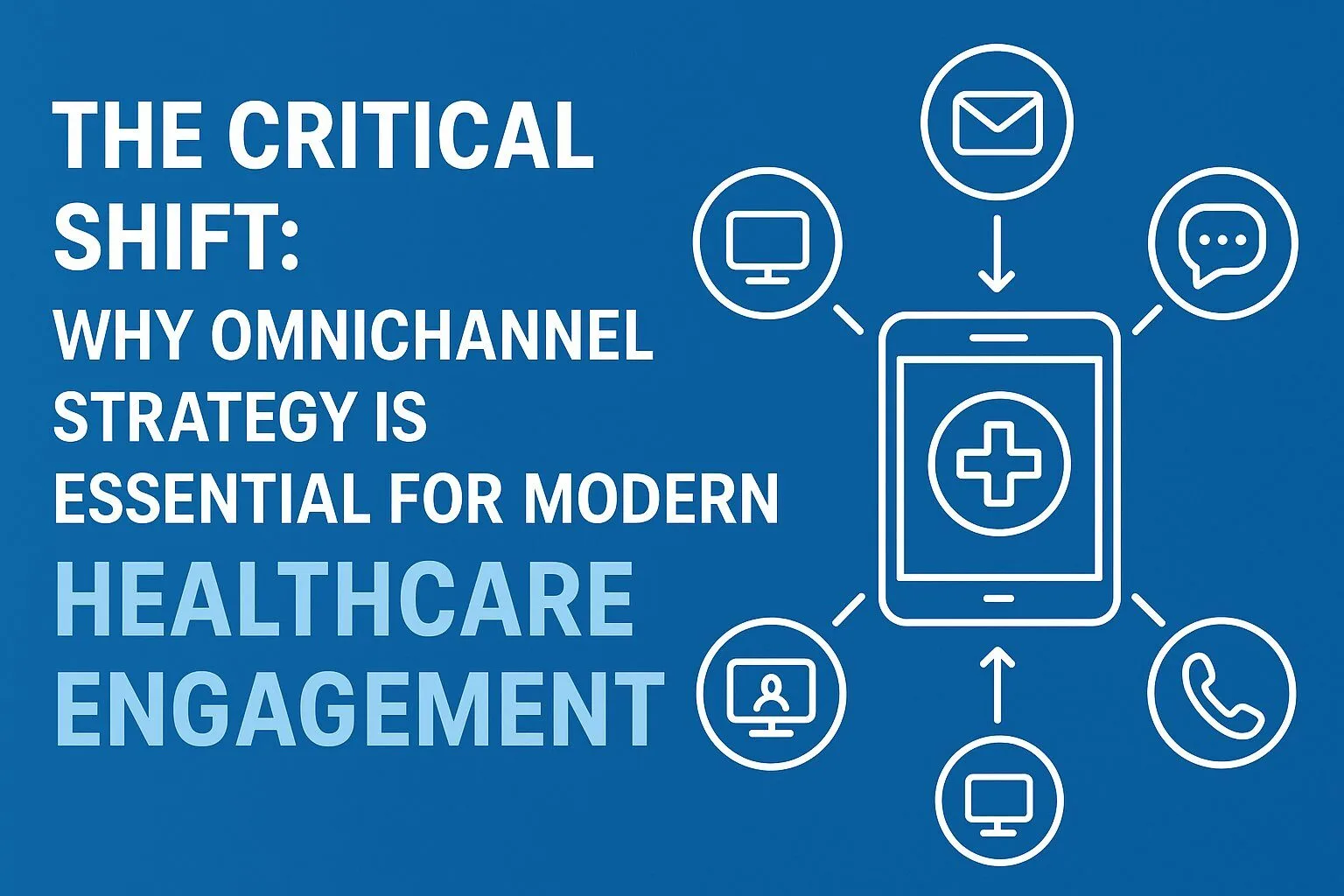The healthcare industry stands at a fascinating crossroads. Driven by rapidly advancing technology, an explosion of data, and increasingly informed patient and professional audiences, the traditional models of engagement are becoming obsolete. To thrive in this dynamic environment, pharmaceutical and medical device companies must fundamentally rethink how they communicate, educate, and deliver value. This imperative is pushing many towards an omnichannel strategy, a vital shift from older, fragmented approaches.
Moving Beyond Multichannel: Understanding the Omnichannel Difference
For years, the industry operated on a multichannel marketing premise. This involved using several distinct channels, perhaps a sales representative visit, an email campaign, a sponsored event, and a corporate website, to reach different audiences. However, this approach often treated each channel as a silo. The experience on the website rarely influenced the content of a representative’s conversation, and the data from an email open might not have been factored into a subsequent engagement. The result was often a disjointed, frustrating, and sometimes confusing customer experience for the healthcare professional or patient.
The transition to omnichannel strategy is far more than simply adding more channels, it is a complete paradigm shift. An omnichannel approach orchestrates a seamless experience across all touchpoints, placing the individual, be it a doctor, a nurse, or a patient, at the very centre. Every channel, digital and physical, works in harmony. For example, a specialist researching a new treatment online might then receive a personalised, follow-up email that acknowledges their specific interest, and the sales representative’s next visit is armed with insights gleaned from that digital interaction. This creates a unified and more meaningful engagement.
The Data Imperative: Personalisation and Relevance
In the modern healthcare sector, data is the lifeblood of effective engagement. The sheer volume of information now available about audience preferences, historical interactions, and educational needs is staggering. An effective omnichannel strategy leverages this data to deliver hyper-personalised content and services.
Consider a busy general practitioner. Their information needs are vastly different from those of a hospital-based consultant. Without a unified view of their interactions, a company risks bombarding them with irrelevant content, quickly leading to message fatigue. Omnichannel excellence, by contrast, relies on a sophisticated digital health infrastructure to create a single, comprehensive view of the customer journey. This enables pharmaceutical companies to deliver the right information, through the right channel, at the precise moment it is most relevant. This focus on relevance not only improves engagement but also demonstrates a genuine understanding of the audience’s professional constraints and knowledge requirements. Ultimately, it builds trust, a critical component in the pharmaceutical industry.
The Rise of Digital Health and the Evolving HCP
The landscape for healthcare professionals (HCPs) is rapidly changing. They are more time-poor than ever and increasingly rely on digital channels for information, continuing medical education, and peer-to-peer networking. The pandemic accelerated this shift, making digital engagement not just an option, but a necessity. Companies that still heavily rely on traditional face-to-face interactions are finding their access shrinking.
This necessitates a robust and adaptive approach that integrates physical and digital channels. This might include virtual conferences that offer real-time Q&A, tailored content libraries accessible on-demand, and sophisticated AI-driven tools that predict a professional’s information needs. Crafting a genuinely unified and customer-centric experience across these varied touchpoints requires deep insight into market dynamics and customer behaviour. This is where the specialist knowledge of a healthcare market research consultancy becomes invaluable, helping businesses to design and execute strategies that truly resonate with today’s demanding audiences. You can explore how to build these interconnected strategies and drive better patient and professional outcomes by looking at the work done by experts in the field, such as the team at Inizio, who focus on the practical implementation of omnichannel solutions.
Driving Commercial Success with a Cohesive Strategy
The investment required for a full-scale omnichannel transformation is significant, but the commercial rewards are substantial. By moving away from fragmented campaigns and towards a cohesive, data-driven approach, pharmaceutical companies can achieve greater message consistency, optimise their marketing spend by targeting more effectively, and ultimately, drive improved patient outcomes. When information is delivered seamlessly, access to vital education improves, and the entire healthcare ecosystem benefits.
Adopting an omnichannel strategy is no longer a matter of competitive advantage, but one of survival and relevance in the modern healthcare sector. It is about being present, personalised, and genuinely helpful at every step of the professional and patient journey. Companies that embrace this complexity now are the ones best positioned to shape the future of healthcare delivery and commercial success.






Leave a Reply